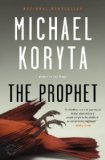Summary | Excerpt | Reading Guide | Reviews | Beyond the Book | Readalikes | Genres & Themes | Author Bio

All of those things scared him more than anything the opponent might do. Overconfidence was a killer.
So, knowing that their confidence would be a difficult thing to shake, knowing that they'd be looking ahead to the school's first state championship in twenty-two years—an undefeated championship, no less—he sought out drills that would show their weaknesses.
Colin Mears would be all-state at receiver for the second year in a row. The fastest kid Kent had ever coached at the position, and the most sure-handed, Colin would run routes all practice long with a smile on his face. Colin would not block long with a smile on his face. His lanky, lean frame made it difficult for him to get low enough quick enough to set the kind of block that contributed, and the Cardinal linebackers were happy to demonstrate that to him. Damon Ritter in particular, who ranked among Kent's all-time favorite players, a quiet black kid with an unmatched ability to transfer game video to on-field execution, as bright a player as Kent had ever had at middle linebacker. Lorell McCoy, likewise, would be all-state at quarterback for the second year in a row. He had the touch that you didn't see often in a high school quarterback, could zip it in like a dart when needed or float one up so soft in the corner of the end zone that his receiver always had time to gather his feet. What Lorell didn't have was Colin's speed. He had unusual pocket presence and read gaps well enough that he could gain yards up the middle consistently, but he had no burst. On a naked bootleg, then, taking the snap and sprinting around the end, he would nearly always be lacking the gear needed to make the play a success, and on the bootleg, Colin Mears had to block, his least favorite thing.
They ran the naked bootleg for the last twenty minutes of practice.
Kent didn't have any intention of beating Spencer Heights on Friday night with this play, but he did intend to beat Spencer Heights, and this reminder of the things that his boys couldn't do well was important. This unbeaten team needed to leave the practice field with a sense of fallibility. The attitude you needed to win football games was a difficult balance. Confidence was crucial; overconfidence killed. Success lived on the blade's edge between.
Up in the bleachers, thirty people were watching. It was cold and windy, but there they sat anyhow. Talents like Mears and Ritter and McCoy were on their way out of the program, and their like might not pass through Chambers again. This much Kent understood better than anyone. He'd been the head coach for thirteen seasons now and had reached the state championship game twice. He had never had a team like this.
Watching them now, he wanted the lights on and the ball in the air. Wanted game day. That was unusual. Like most coaches, he was always wishing for one more practice day. You were never prepared enough. This week, though, this season, this team? He found himself wanting to be under the game lights. Wanted it over, so he could begin wishing that it had never ended. Because if he couldn't close out that elusive state championship with this kind of talent?
It's a game played among boys, he reminded himself while Matt Byers, his defensive coordinator, walked into the middle of the field to make a point about leverage, and the reason you're here is to use this game to help these boys. You're not here to put a trophy in that case. Never were, never will be. That trophy's absence doesn't say a thing about your measure as a man, and its presence wouldn't, either.
This season, though? This season that was difficult to remember.
He let Byers say his piece and then he called them over, everyone circling around him, forty-seven players and six coaches, and told them they were done.
"Keep your heads down," he said, the same thing he said to end every practice and locker room talk until the season was finished. Then he'd tell them to lift their heads up and make sure they held them high. Only then.
Excerpted from The Prophet by Michael Koryta. Copyright © 2012 by Michael Koryta. Excerpted by permission of Little Brown & Company. All rights reserved. No part of this excerpt may be reproduced or reprinted without permission in writing from the publisher.
Your guide toexceptional books
BookBrowse seeks out and recommends the best in contemporary fiction and nonfiction—books that not only engage and entertain but also deepen our understanding of ourselves and the world around us.